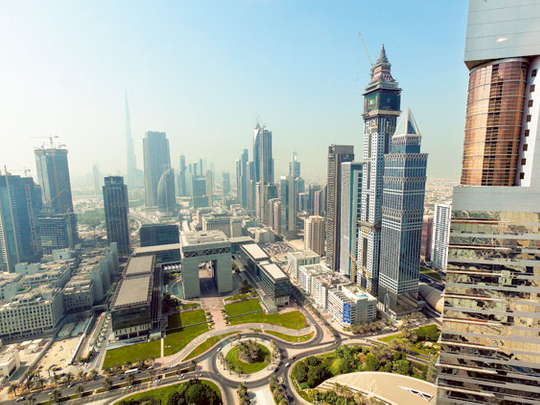
Dubai: Dubai’s diversification model has right mix to re-accelerate growth, said Bank of America Merrill Lynch in a report entitled “GCC 2020: Time to Shift Gears”.
The report observed that more endowed countries such as Saudi Arabia, Qatar and the UAE have better chances to outperform their regional peers in economic growth.
BofA Merrill Lynch economists said that Dubai is set on course to outperform growth projections driven by job creation, improved funding and solid execution of its diversification strategy.
“Dubai has the right mix to re-accelerate growth. Dubai’s model of diversification stands out, having already achieved a critical mass, scale and a degree of competitiveness,” said Stephen Pettyfer, head of MENA Research at BofA Merrill Lynch Global Research.
According to BofA Merrill Lynch’s new medium-term outlook Dubai’s superior infrastructure investment and robust population growth have established solid foundations for its economic trajectory.
“Dubai’s status as a regional financial, transport and logistics hub places it in a position to benefit from growth in neighbouring countries in a self-sustaining fashion,” said Jean-Michel Saliba, Middle East and North Africa (MENA) economist at BofA Merrill Lynch.
“Dubai’s status as a regional financial, transport and logistics hub places it in a position to benefit from growth in neighbouring countries, in a self-sustaining fashion,” said Saliba.
Rapid growth in population is seen as a key element in Dubai’s economic growth model. The emirate’s population grew at an average of 7.7 per cent year on year between 1994 and 2010, and the Dubai population now represents 36 per cent of total UAE population.
According BofA Merrill Lynch, Dubai’s vision has relied on an element of risk-taking and forward-looking policies. It used its oil revenues early on to help fund the construction of Jebel Ali Port Complex to supplement Port Rashid, and its diversification efforts predate most other GCC country initiatives.
The report suggests that while the economy slowly recovers, Dubai is one of the best GCC cities to develop business. Its relatively small population of 2.1 million people and the ambitious objectives of the major Dubai-based corporates mean job creation should accelerate and support the real estate market.
Although the current working population in Dubai stands at 1.3 million, the emirate aims to create 950,000 new jobs by 2020, with retail, tourism and related sectors fuelling growth. This is an ambitious but realistic goal which would see the population increase on average by 4 per cent, which will, in turn, drive further economic growth.
Pettyfer concluded by saying, “Dubai’s diversification model has proved successful in developing both infrastructure assets faster than other GCC countries, and a non-oil-based economy more geared towards trade and tourism. That gives the emirate a key regional competitive advantage in attracting talent and boosting non-hydrocarbon-related activities.”












